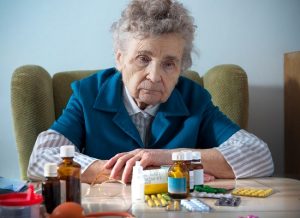Perhaps not so many people know, a better whole body health starts with oral and dental hygiene. That’s why we are always advised to take good care of our dental health from a young age. The importance of healthy teeth and mouth more comes into view throughout adulthood and into old age. The oral and dental health of the elderly will determine the quality of life in old age.
Healthy Teeth and Mouth
Physical health does not only require an active and healthy lifestyle. Maintaining good oral and dental hygiene can also help the body fight infection and bacteria. Oral and dental infections may lead to more serious and life-threatening health problems.
Like any other part of the body, our mouth is full of bacteria. Bacteria do not always cause disease. There are also good bacteria that help the human body system. Most bacteria in the mouth are harmless, such as Lactobacillus. But bad bacteria may also fill our mouth if its health is not maintained. Mouth is the entrance to the respiratory and digestive tracts. When it becomes a comfortable home for bad bacteria because it is not healthy, diseases may occur and attack the respiratory or digestive systems and even affect other systems.
Normally, the body’s natural defences along with daily oral and dental care such as brushing and flossing can control bad bacteria. However, without efforts to maintain the health, oral and dental infections such as gum disease and tooth decay may arise.
Oral and dental health of the elderly requires special attention because they are more susceptible to disease. A seemingly minor problem such as a toothache or cavities can affect how you eat, drink, or talk. In the end, it is difficult for the elderly to maintain their quality of life because their daily activities are disrupted due to dental and oral problems. Especially if the problem causes more dangerous diseases.
Risks of Unhealthy Mouth and Teeth
With healthy mouth and teeth, foods and drinks that we like will be more enjoyable. Lack of dental and oral health may bring risks such as:
Tooth decay
Teeth have a hard outer layer called enamel. Every day, dental plaque that consists of bacteria accumulates on the teeth. These bacteria produce acids that may harm the enamel and cause cavities or tooth decay.
Gum disease
This disease occurs when plaque builds up below the gum line. The consequence is oral and dental infections which damage the gums and bones that hold the teeth in position. Mild gum disease or gingivitis develops when gums become tender, red, and bleed easily. If the disease is severe, the infection may cause sores and bleeding gums, pain when chewing, and even tooth loss.
Dry mouth
Dry mouth occurs when there is not enough saliva to keep the mouth moist. As a result, it is difficult to eat, swallow, taste food, and speak. Dry mouth may contribute to the increasing risk of tooth decay, fungal infections in the mouth, and cavities.
Oral cavity cancer
Lack of dental and oral health in the elderly may trigger oral cancer. This type of cancer is more likely to happen in people aged 40 and older.
Cardiovascular disease
Bacteria in the mouth can travel through the blood vessels and trigger inflammation of the arteries and cause cardiovascular conditions, such as heart attacks, angina (chest pain), abnormal heart rhythm, and strokes.
Endocarditis
This disease happens due to inflammation of the endocardium or the inner lining of the heart. Inflammation may be caused by bacterial infection from the mouth that enters the bloodstream and attaches to the endocardium.
How to Maintain a Healthy Mouth and Teeth
Oral and dental health of the elderly can be obtained by conscientiously caring for the teeth and mouth every day. We can practice healthy habits to maintain oral and dental hygiene since infancy. Here are some ways to have a healthy mouth and teeth:
- Brush your teeth at least twice a day with a fluoride toothpaste that helps strengthen tooth enamel
- Floss your teeth at least once a day
- Do not smoke or consume other tobacco products
- If you are taking any medication, ask your doctor if they have side effects that could damage your teeth
- Check your mouth regularly to see if there are any visible dental problems
- Visit your dentist every six months for regular check-ups and cleaning
At-Home Therapy
You can maintain oral and dental health by doing at-home therapy. The key is to keep oral hygiene to fight plaque and bacteria. The most effective therapy is regularly brushing your teeth to break the chain of oral and dental infections. Thera are several other ways:
- Use dental floss to remove food particles stuck in the teeth. Leftover food that a toothbrush can’t reach may lead to swollen gums and damaged teeth.
- Gargle with a mouthwash that contains certain ingredients including fluoride to remove food particles and suppress bacterial growth, prevent plaque formation, and freshen your breath.
- Reduce consumption of sweet and sticky foods because they can stick to the teeth and gums for a long time.
- Avoid using a toothpick because it can injure the teeth and gums.
Start Good Habits from an Early Age
Oral and dental health of the elderly can be fostered from an early age. Children need to be educated about the importance of oral and dental health. Parents must also provide guidance and examples to form good habits since they were kids so the habits are carried over to adulthood.
One habit that is often overlooked though it is important to prevent oral and dental infections is brushing teeth at night. Parents need to accompany their children brushing their teeth before bed so they will obey the rule. Another important habit is to visit the dentist regularly for oral and dental health checks. Even if they refuse, parents should always persuade them to have regular check-ups at least every six months.
Caregiver Role to Help Keep Elderly’s Oral and Dental Health
It is better for older people to have a caregiver or nurse who could help them maintaining oral and dental health daily. Especially if there are oral and dental problems that interfere with daily activities and result in poor quality of life. A caregiver can help them by:
- Brushing their teeth twice a day for two minutes using fluoride toothpaste
- Cleaning their teeth with dental floss
- Rinsing their dentures after eating; brushing, removing, and storing dentures in the water before bed
- Limiting snacks and sugary drinks
- Making an appointment and taking them to a dentist
- Watching for signs of oral and dental infections that may signal a bigger problem
Elderly people who have limitations because they are currently or have just finished undergoing treatment for a certain disease need a caregiver to help improve their quality of life.



